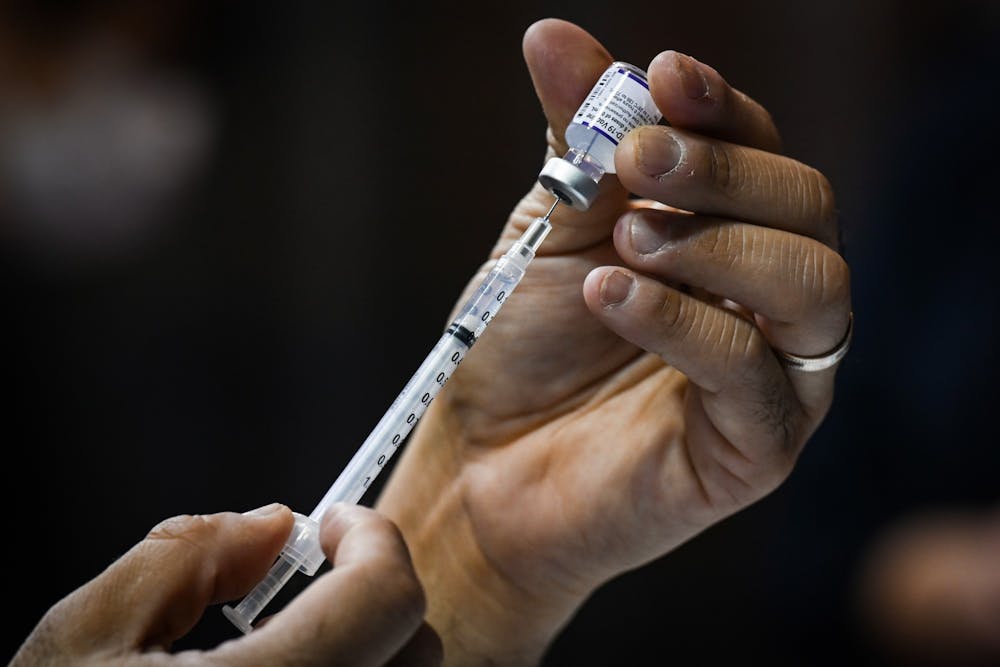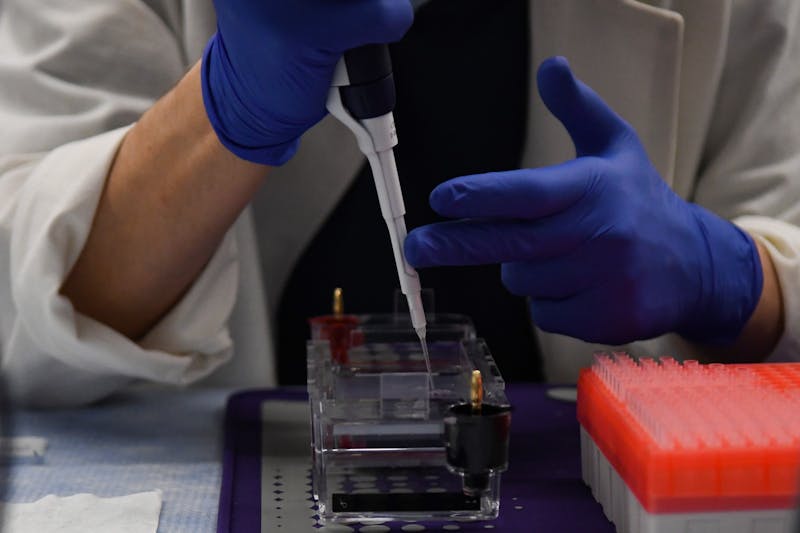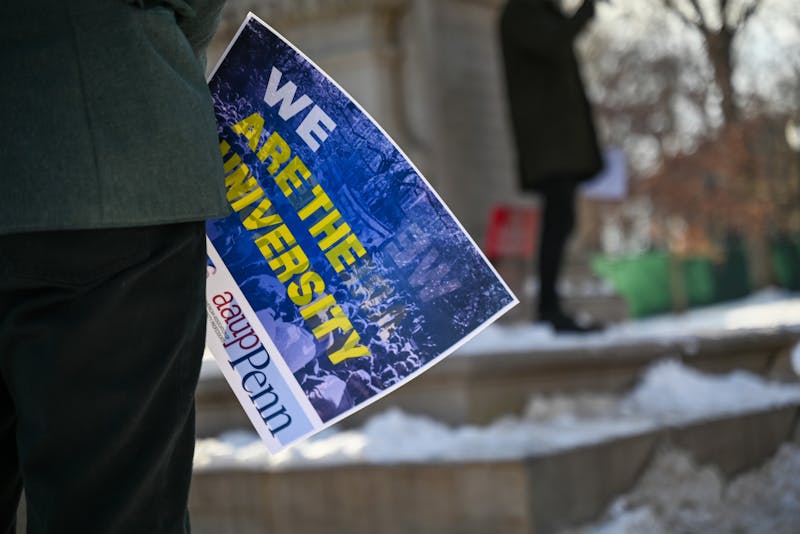
The University of Pennsylvania has sued BioNTech over alleged underpaid royalties on the brand's COVID-19 vaccine.
Credit: Kylie CooperThe University of Pennsylvania has sued BioNTech, alleging that the German biotechnology company has underpaid royalties owed to Penn for patents used in BioNTech’s and Pfizer’s COVID-19 vaccine.
The lawsuit, filed in Pennsylvania federal court on Aug. 5, includes two breach of contract claims. The first accuses BioNTech of “failure to pay royalties on net sales of licensed product,” while the second alleges “improper royalty reduction” by the company.
Pfizer is not a defendant in the suit.
“Penn is seeking full royalty payments under patent licensing agreements that enabled BioNTech to develop its marked COVID vaccine. Penn uses the revenue generated from these licenses to fund additional ground-breaking research that leads to the discovery of new, life-saving therapies and technologies,” a University spokesperson wrote to The Daily Pennsylvanian.
“BioNTech’s guiding principle in collaborations is generally driven by mutual respect and fairness, which is why we have been in discussions with the University of Pennsylvania regarding royalties for over a year,” a statement from BioNTech to the DP reads. “We disagree with the positions being taken by the University of Pennsylvania, and intend to vigorously defend ourselves against their allegations.”
According to the University, BioNTech manufactures its shots in countries where Penn has a patent on its technology. As a result, the University claims that BioNTech should be paying royalties for all of its shots distributed worldwide, not simply for “shots ‘sold into’ countries where [Penn] owns a patent,” as reported by Reuters.
Additionally, Penn claims that BioNTech has underpaid royalties, asserting that BioNTech reduced its payments before reaching the agreed-upon threshold specified in their contract.
The contract permits BioNTech to lower payments to Penn once BioNTech’s total royalty payments to third-party companies surpass a certain, undisclosed amount. However, the University alleges that BioNTech reduced its payments prematurely, before this cap was met.
Penn and BioNTech have reportedly been in conversations about these royalties for over a year. Penn has received almost $1.6 billion in those royalties from 2021 to 2023, according to an analysis conducted by The Philadelphia Inquirer.
The patent in discussion pertains to the COVID-19 vaccine’s use of mRNA technology developed by Penn researchers Katalin Karikó and Drew Weissman, who were awarded the 2023 Nobel Prize in Medicine in October 2023 for their groundbreaking research. Shortly after the announcement, the DP reported allegations of mistreatment of Karikó by the University.
Karikó declined to comment. Weissman did not respond to a request for comment by the time of publication.
The Daily Pennsylvanian is an independent, student-run newspaper. Please consider making a donation to support the coverage that shapes the University. Your generosity ensures a future of strong journalism at Penn.
Donate












